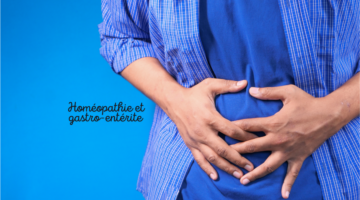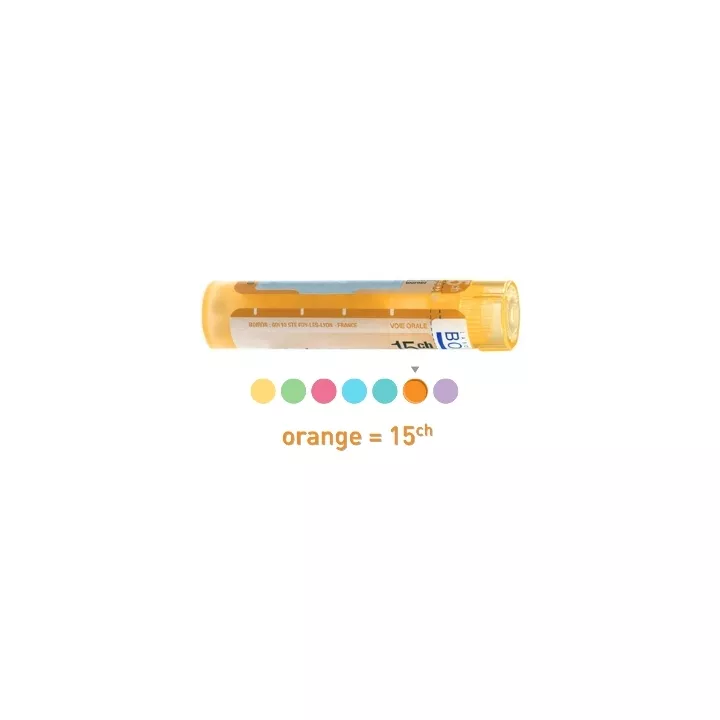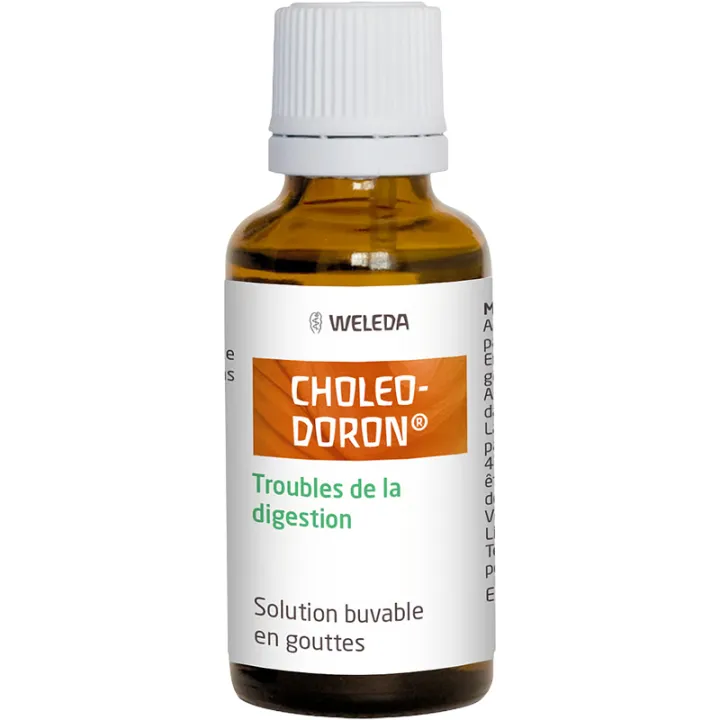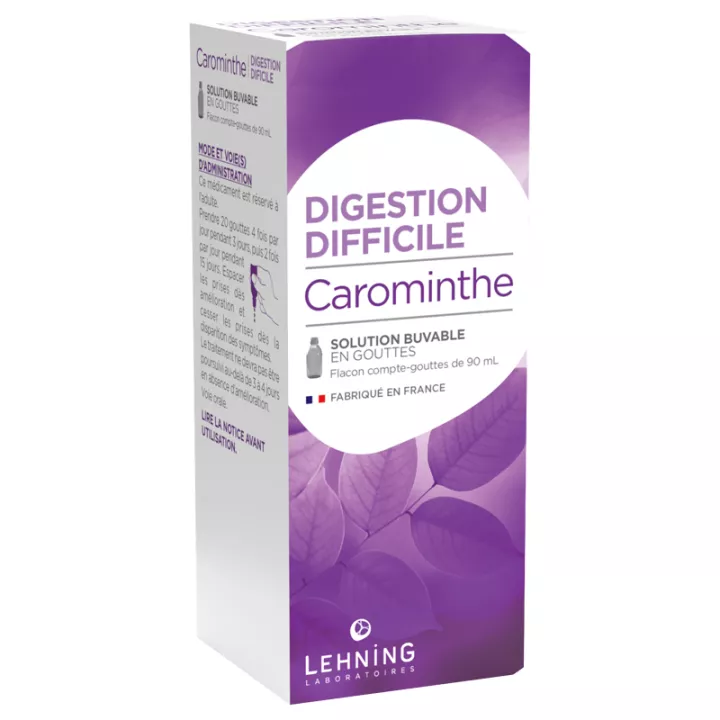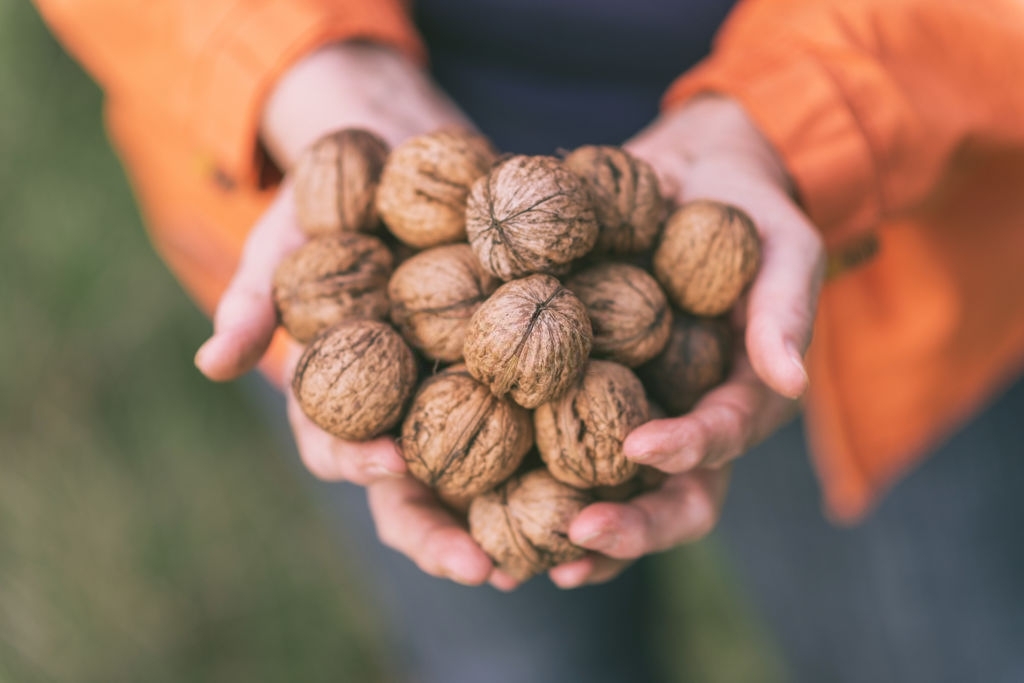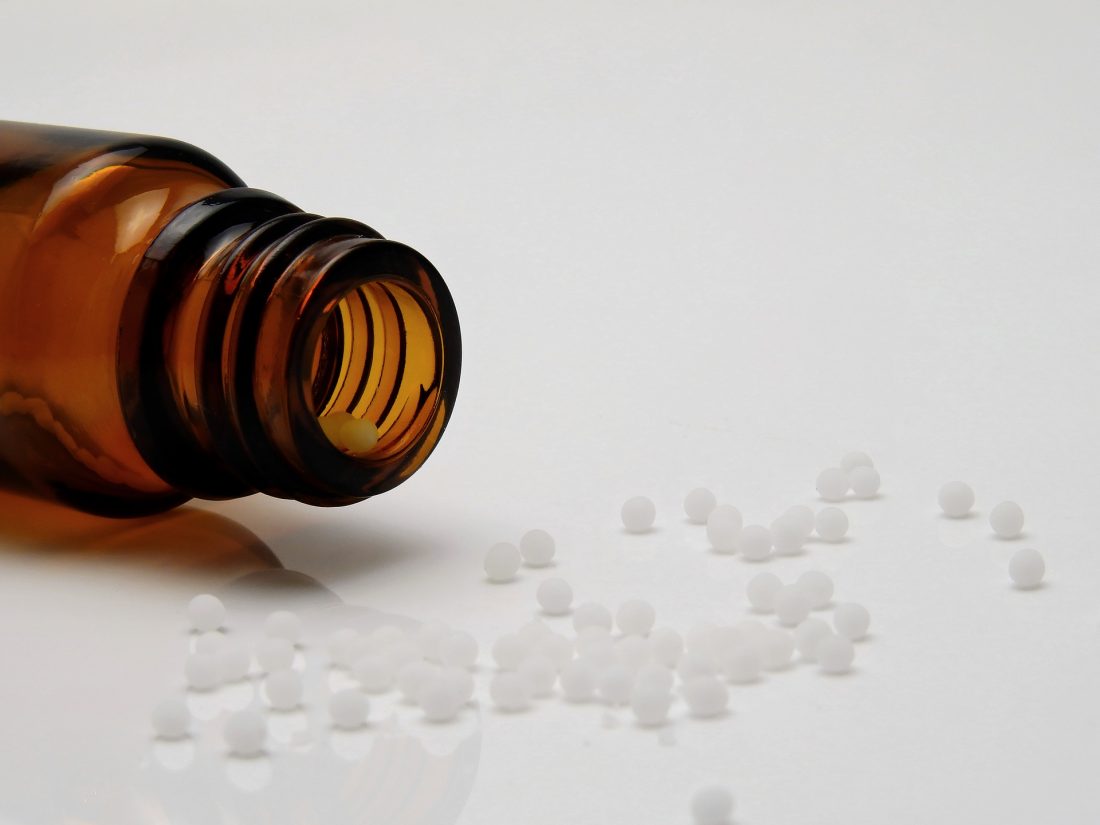Robinia pseudo acacia 4CH, 5CH, 7CH, 9CH, 15CH Boiron homeopathic granules
Registered medicine: EH00853
Origin: Plant
Homeopathy, that branch of alternative medicine which uses the principles of similitude to treat various ailments, finds Robinia pseudo-acacia an invaluable source for the treatment of digestive disorders. Originating from a plant with the evocative name of Robinia, this natural extract takes its name from Jean Robin, the renowned botanist who introduced it to Europe. Its rich, ancient history reveals a panoply of therapeutic virtues little known to the general public. Today, we're rediscovering these benefits, particularly when it comes to digestive regulation.
History and origin: discovering Robinia pseudo-acacia
Jean Robin, a name that resonates with the world of botany, is credited with the discovery of the robinia, a tree of singular beauty and remarkable properties. Such was his contribution to botany that the tree now bears his name, a living testimony to his legacy. Since its discovery, Robinia pseudo-acacia has been celebrated not only for its splendour, but also for its many therapeutic applications.
Robinia bark: a therapeutic treasure
The use of Robinia bark in homeopathy is rooted in a tradition of natural healing. Its specific properties make it the remedy of choice for digestive problems and dyspepsia, disorders that are often neglected but have a significant impact on quality of life. By acting on the digestive system, Robinia pseudo-acacia offers a gentle yet effective solution for restoring gastric balance.
Homeopathic indications for Robinia Boiron
Homeopathic medicines can be used for a variety of symptoms, so it's not possible to determine the indications and dose of a specific preparation. The homeopathic physician selects the appropriate medicine, dilution and dosage according to the patient's state of health and characteristic symptoms.
Say goodbye to Gastric Acidity with Robinia pseudo-acacia 9CH
The Homeopathic Solution for Easy Digestion
If you suffer from gastric acidity, dyspepsia or acid reflux, Robinia pseudo-acacia 9CH is your natural ally for soothing digestive discomfort and restoring gastrointestinal well-being.
Why choose Robinia pseudo-acacia 9CH for your gastric acidity?
- Natural and without side effects: Robinia pseudo-acacia 9CH is a homeopathic remedy that treats gastric acidity gently and effectively, without the undesirable side effects of conventional medicines.
- Digestion made easy: You deserve to enjoy every meal without the inconvenience of dyspepsia. Robinia pseudo-acacia 9CH makes digestion easier, offering welcome relief.
- Serene Nightlife: Symptoms of gastric acidity are often worse at night, disrupting your sleep. Robinia pseudo-acacia 9CH improves your nights by reducing these unpleasant symptoms.
A Natural Response to Digestive Disorders
Gastroenterology, the medical discipline dedicated to diseases of the digestive system, recognizes Robinia pseudo-acacia 's effectiveness in treating digestive imbalances. Its benefits are particularly noteworthy in the treatment of gastric acidity and stomach ulcers, the scourges of our age when stress and diet play a predominant role. This homeopathic remedy also successfully combats nausea and vomiting, relieving patients of unpleasant and often disabling symptoms.
Gastric Acidity and Robinia pseudo-acacia: A Winning Duo
Gastric acidity, a burning, uncomfortable sensation, finds a worthy adversary in Robinia pseudo-acacia. Thanks to its neutralizing properties, this natural remedy significantly reduces acidity and burning sensations, offering lasting relief to those affected. Its ability to regulate gastric pH makes it a first-rate solution for those seeking to escape the discomfort of acidity without resorting to heavy drug treatments.
Towards soothed digestion: the promise of Robinia pseudo-acacia
Digestion, a vital process often disrupted by our modern lifestyle, benefits greatly from Robinia pseudo-acacia. By restoring harmonious digestive function, this remedy contributes to better assimilation of nutrients and restored digestive comfort. Disorders such as ulcers, often linked to excessive acidity, are also effectively treated, attesting to the versatility and effectiveness of this natural treatment.
Directions for use and dosage
Do not touch homeopathic granules with your fingers.
The globules in single-dose tubes are absorbed in a single dose, dissolving slowly under the tongue. If no dose is available, take 10 granules of the same dilution.
Use a mint-free toothpaste (such as Homéodent Boiron, which is compatible with homeopathic granules).
Recommended dosage for maximum effectiveness
For digestive disorders, specifically dyspepsia, Robinia pseudo-acacia 5 CH is recommended. The suggested dosage is 5 granules per session, to be taken during acute episodes of digestive disorders. These granules should be taken as often as necessary until there is a noticeable improvement in symptoms.
For long-term treatment, it's advisable to continue taking them regularly, two or three times a day. This method ensures effective long-term symptom management, contributing to a better quality of life for those affected.
Diseases targeted by Robinia pseudo-acacia
Robinia pseudo-acacia 's spectrum of action extends to several digestive pathologies, offering a homeopathic solution for :
- Dyspepsia: Digestive disorders manifested by pain or discomfort in the stomach.
- Gastritis: Inflammation of the stomach mucosa, leading to pain and discomfort.
- Hiatal hernia: Backflow of part of the stomach into the thorax, causing reflux and discomfort.
- Gastroesophageal reflux disease: reflux of stomach contents into the esophagus, causing burning and pain.
- Gastroduodenal ulcer: Lesion on the mucous membrane of the stomach or duodenum, causing severe pain.
Packaging and contents
Robinia pseudo-acacia, commonly known as black locust, is a plant used in homeopathy mainly to treat digestive disorders such as gastric hyperacidity and gastro-oesophageal reflux. Registered under number EH00853 and listed in the French and European Pharmacopoeia, this plant-based strain is available in doses, tubes and magistral preparations, offering a range of dilutions for personalized therapeutic application.
Origin and properties
Black locust is renowned for its effects on the digestive system, notably its ability to modulate gastric acidity and relieve symptoms associated with hyperacidity, such as heartburn, acid regurgitation and gastric pain.
Available formulations
Doses and tubes: The remedy is available in several potencies, with doses at 9 CH and tubes from 4 CH to 30 CH. These different dilutions can be adapted to suit the intensity of symptoms and individual sensitivity.
Magistral preparations: For more precise personalization, Robinia pseudo-acacia can also be prepared in Hahnemannian dilutions starting at 2 CH. This option reinforces the importance of the individualized approach in homeopathy.
Therapeutic applications
Robinia pseudo-acacia is often recommended for :
- Gastric hyperacidity, helping to reduce excess acidity and relieve heartburn and pain.
- Gastroesophageal reflux disease, by helping to reduce acid regurgitation and esophageal burning.
- Digestive disorders associated with poor digestion, by improving digestive comfort after meals.
Discover Robinia pseudo-acacia 9CH, the natural homeopathic remedy for easier digestion and a life without stomach acid. Enjoy your meals with complete peace of mind today!
Precautions for use
Warning
Contains sacchararose.
Giving homeopathic granules to babies and children
For granules or alcoholic drops, dissolve in 100ml of water. As granules take a long time to dissolve, it is necessary to prepare your mixture in advance.
Homeopathy and pregnancy
Homeopathic medicines have no chemical toxicity, no contraindications, no interaction with other drugs, and no adverse effects linked to the quantity of product ingested. Pregnant women can use homeopathic remedies without any known risk to themselves or their unborn child, but it is advisable to seek advice.
Frequency of homeopathic use
For acute conditions, homeopathic remedies should be taken every hour until symptoms improve. From then on, they should be taken 3 or 4 times a day, spaced out, and then gradually stopped.
For chronic conditions, low-dilution remedies (> 9CH) should be taken 1 or 2 times a day, while basic remedies should be taken once a week, or even once a month. This decision is left to the homeopath.
What to do if there is no improvement within 24 hours
Certain pathologies cannot be treated with homeopathy simply by self-medication. Their severity requires medical advice from a homeopathic doctor. This doctor will judge whether your condition can be treated with homeopathy alone, or whether your treatment needs to be supplemented with allopathic medicine.
